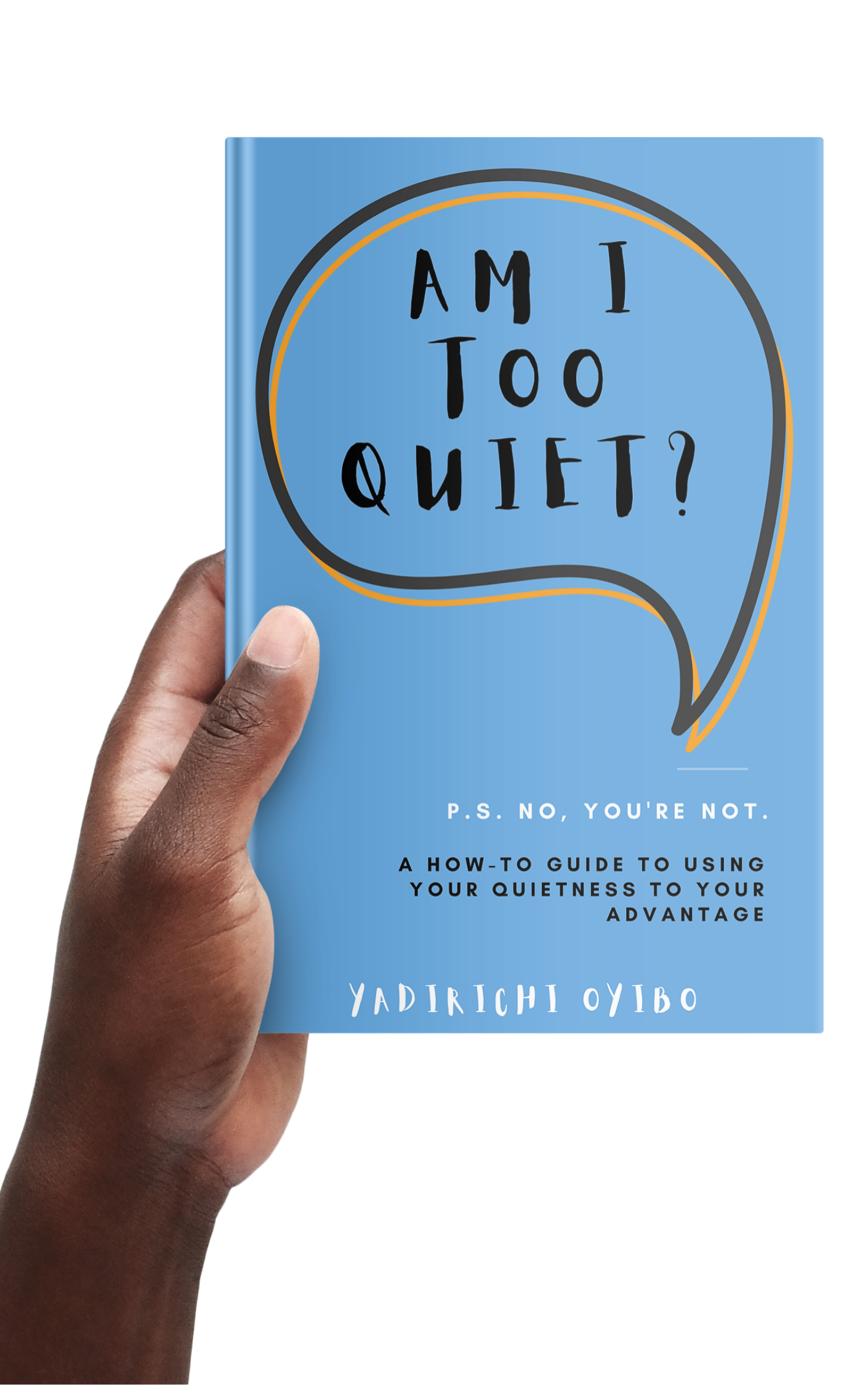9 Absolutely Creative Ways to Tell Stories as an Introvert
Photo by Nubelson Fernandes on Unsplash
Writing is one of the many gifts that introverts possess, and there’s a good reason why they’re good at it. For the most part, introverts have excellent observation skills and pay attention to little details that most people might miss.
However, due to our soft-spoken nature, it can be challenging for us to express ourselves, and ultimately, connect with our audience in the way we’d like to. If you’re in this dilemma, we’re here to teach you how to be good at telling stories.
Whether you want to speak to a physical audience, or write stories, below are nine amazing tips on how to become a good storyteller.
9 Tips on How to be Good at Telling Stories as an Introvert
Photo by Nubelson Fernandes on Unsplash
Have a strong message.
There are many creative ways to tell stories. For introverts, the major struggle is getting the story across when everyone’s attention is still intact. The best way to go about this is to have a clear message. You should know the reason why you’re telling the story, and why it’s good enough for others to hear. Knowing this factor alone gives you an immediate confidence boost.
It is also how to tell a story that captivates your readers. Understand that telling the story is one thing, but making it meaningful is another. If you’re telling a story that sounds good but doesn’t affect the listener in any way, your effort will be futile. Therefore, think of one resounding thing that makes your story stand out, and everyone will want to listen to it.
Also, understand that your story could be from any niche. It could even be a funny story. Irrespective of your story type, having a central message is how to tell a good story. Creating ways to tell stories that your audience will love starts with an idea, and that idea starts from you.
Tips on how to tell stories using a central message:
Research multiple themes and pick one.
Focus on the character’s experiences.
Look for what is repeatedly occurring throughout the story.
Focus on important events in the story.
You can use the main theme to begin the story. For example, this is a story about friendship.
2. Use conflict.
Life isn’t a bed of roses, and your character’s life shouldn’t be either. Interesting storytelling embraces conflict because it adds essence to the story. Therefore, you need to incorporate obstacles to tell better stories. Irrespective of whether you’re recalling true life events or creating a story from your imagination, there has to be a struggle that makes the ending more satisfying.
Understand that you can’t tell a story without drama or hardship or it will make no meaning to the reader. Most introverts might want to keep their work clean, without the character going through hassles. Nevertheless, this step is how to tell a great story that inspires your readers and makes an impact in their lives.
Always remember that people want relatable stories. Therefore, you should learn to tell stories that people can see themselves in, and possibly have hope that their everyday lives will be better. If you always give your audience what you think will make them happy, and not necessarily what will inspire them, you might lose them.
Tips on how to story-tell using conflict:
Determine the type of conflict your story needs.
Think about your character’s main goal and create an obstacle.
Create characters with contradictory values.
Create an antagonist.
Retain the conflict throughout the middle of the story.
Related: Am I Too Quiet? P.S. No, You’re Not. A How-To Guide to Using Your Introversion to Your Advantage
3. Structure your story.
The secret to telling great stories is to have a structure that works for you. If you want to learn how to tell a story, you need to get accustomed to basic structures. In most cases, this is organized with a beginning, middle, and end. However, most advanced storytellers don’t stick to these standards. It takes a great deal of practice and expertise to use these systems differently.
There are three major questions you should ask yourself if you want to learn to tell stories with a good structure. The first question is, “Where do I begin?” You need to have an amazing opener that keeps any reader or listener glued to your words. Next, you need to ask yourself, “What should the middle of the story look like?” This helps you draft the perfect plot for your story.
Lastly, you should ask yourself, “How should my story end?” The answer to this questions will help you know how to tell better stories that intrigue your readers.
Tips on how to story-tell with structures:
Have a captivating opener.
Create an incident that will change the dynamics of the story.
Think of a series of conflicts that will build the story’s tension.
Create a climax.
Think of a beautiful ending.
4. Use your experiences.
True life experiences connect tremendously with people because of how relatable and unfeigned they are. Therefore, if you’re an introvert struggling to create an interesting story, try relating to your personal experiences. Stories told from real-life encounters are called personal narratives, and they tend to have a transformative effect on readers.
Practicing this step is key to learning how to be a better storyteller. Some great ideas to help you create stories from your personal experience can include; discussing a difficult time in your life and how you overcame that situation, or a a funny encounter that made an unlikely impact on the way you see something.
Other perfect examples of how to tell great stories from your personal experience include sharing a career lesson, things learned from mentors, or a repeated failure that eventually led to success. Lastly, you can choose to share a defining moment in your life. These examples will help you know how to tell a personal narrative or how to tell your story.
Tips on how to tell good stories in conversations using a personal narrative:
Start with an incident.
Discuss how the situation transformed you.
Talk about the life lesson or key takeaway.
5. Engage your audience.
Having good stories to tell isn’t enough if your audience doesn’t feel the emotion in the story. Therefore, telling a good story involves engaging your audience's senses and keeping them glued to the story. The best way to accomplish this is by paying attention to how you’re telling the story.
For example, if you’re telling a story to a physical audience, making eye contact now and then can keep your listener connected. You can also try to incorporate more emotion into your words instead of speaking in a monotonous tone. Always remember that you’re the one narrating the story; so, set the mood to reflect the message the story is trying to convey.
It can be hard for introverts to be more expressive especially when it doesn’t feel natural. However, learning how to be a good storyteller in conversations involves using body language to communicate. Even though it might feel awkward, try to use hand gestures to bring a sense of reality to your words.
You can also change the tone of your voice to match the characters or perhaps, the emotion in the sentence. Lastly, don’t forget to project your voice, because this can be a real issue for most soft-spoken individuals, including myself.
Tips on increasing audience engagement and becoming a better storyteller.
Make the story personal to connect emotionally.
Ensure the story is visual.
Bring the characters to light through dialogue.
Be present.
6. Observe other storytellers.
Learning to tell stories involves paying attention to the techniques other great storytellers use. Knowing how to tell an engaging story is much better than having the best story to tell. Therefore, if you’ve ever loved a book or movie, pay close attention to the storytelling how-to methods. You can become a better storyteller merely by being perceptive.
Don’t just enjoy the great narrative, but keep learning how to tell stories from your favorite authors or scriptwriters. How I tell a story will undoubtedly be different from yours, but if the delivery is excellent, then it’s worth checking out. You can make a basic story sound excellent if you learn how to be a good storyteller.
Understand that even your friends, family members, or colleagues might know how to tell stories brilliantly. If you've ever enjoyed their narrations, you can pay attention to their delivery methods. It could be their enthusiasm while talking, or merely their body language. Observing how a normal person tells a story can give you more insight than you can imagine.
Tips on how to do storytelling through observation.
Listen beyond the storyline.
Pay attention to the storyteller’s use of words.
Observe their structures.
Practice until you find what works for you.
7. Skip to the good part.
If you want to learn how to tell a story effectively, you need to trim down a lot of unnecessary details. This step is especially crucial if you’re learning how to tell your personal story. Most storytellers that want to give a personal narrative, often feel it’s necessary to include all the elements of the story. However, this process can be overwhelming or tiresome to the audience.
Every aspect of your story might seem crucial to you but would bore your listeners. It’s because they don’t have the time to experience the full scope like you. They simply want the best parts. Therefore, learning how to skip and only highlight the key aspects of your story is necessary. It might feel uncomfortable, but it’s more crucial than you realize.
Think about the major thing that occurred at the beginning, middle, and end of your story, and highlight those areas. You need to be able to grab your audience’s attention in the first few seconds before you lose them.
The best way to accomplish this is by telling them why they need to listen. Hit the nail on the head before you even begin. For example, “You won’t believe what just happened to me!”
Tips on how to tell a simple story.
Narrow down to the essential details.
Share the good part and skip the rest.
Keep your audience’s attention by telling them why they should listen.
Liking this article? Join our Introvert Club→
8. Use bold words.
If you’re wondering how to get better at storytelling, you need to learn how to use the right words. Bold statements can trigger your audience to pay more attention to what you’re saying. For example, “I had the most unbelievable night? This tactic is how to start telling a story that people will be eager to listen to.
It’s also prudent to use words that will trigger people’s emotions. Words like breathtaking, painful, heartbreaking, etcetera. Including how you felt, and not merely what happened is how to tell a story effectively. Your audience will be able to relate better to your words.
Words like important or interesting have been overused, so you might need to think of better synonyms to express yourself. However, avoid using complex grammar, or your listeners will be more confused than you want them to. Stick to the everyday common language and remember that the average reading level is 7th grade.
Your story needs to be as relatable as possible, and not necessarily show your writing/storytelling prowess.
Tips on how to tell an interesting story with the right words:
Use simple grammar.
Share your feelings.
Use audacious/captivating line-openers.
9. Trigger their imagination.
Allowing your audience’s imagination to work while you share an encounter is how to tell interesting stories. Think of the storytelling experience as a dialogue, even though you can’t get a response from your audience. Instead of doing all the talking, ensure your listeners/readers can participate and visualize the experience alongside yourself.
The best way to accomplish this is by asking questions. You don’t need to do this excessively but at crucial points. If you’re approaching a climax in your story, you can ask your listeners what they think happened next. This tactic keeps them engaged and eager to listen to your story to the end.
Try to avoid basic yes or no questions like, “Do you think she jumped into the water?” because this might be too easy to predict. More so, it doesn’t allow a person’s imagination to wonder enough. Instead, ask open-ended questions like, “What do you think happened as she jumped into the water?”
However, stay away from extremely open-ended questions like, “How do you think this story ends?” or you might piss your listeners off.
Tips on how to tell stories effectively by triggering your audience’s imagination:
Ask a few questions, but not too many.
Use questions as cliffhangers or while approaching your climax.
Make your inquiries open-ended, but moderately.
FAQs
What is a good story to tell?
A good story is anything that your target audience will benefit from. It can be to inspire, educate, or simply entertain them. There has to be a clear reason for someone telling a story for the process to be effective.
How to get better at telling stories?
Learning how to be a better storyteller in conversations or via writing, you need to practice. Gaining knowledge will never be enough until you engage what you have learned and find out what works for you. Being better at telling stories depends on finding a unique and effective method of expression.
How to tell your story examples?
If you’re saying, “I want to tell stories for a living,” and looking for a perfect example, consider reading out our introvert books, which express the world inside an introvert’s mind in the most unique and unlikely way.
Live Your Best Quiet Life
Get the Am I Too Quiet? book →
CONCLUSION
Did you enjoy this article? Remember not to force an association if the other party’s isn’t interested in building worthwhile with you. It’s better to have no friends than have people who don’t genuinely support you. Kindly leave a comment below if you liked this article, or simply share it with others.















